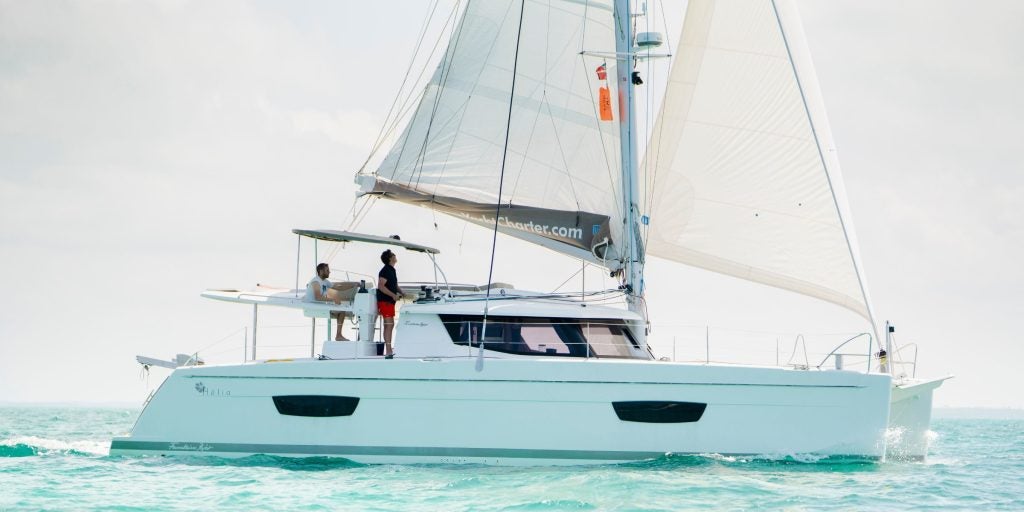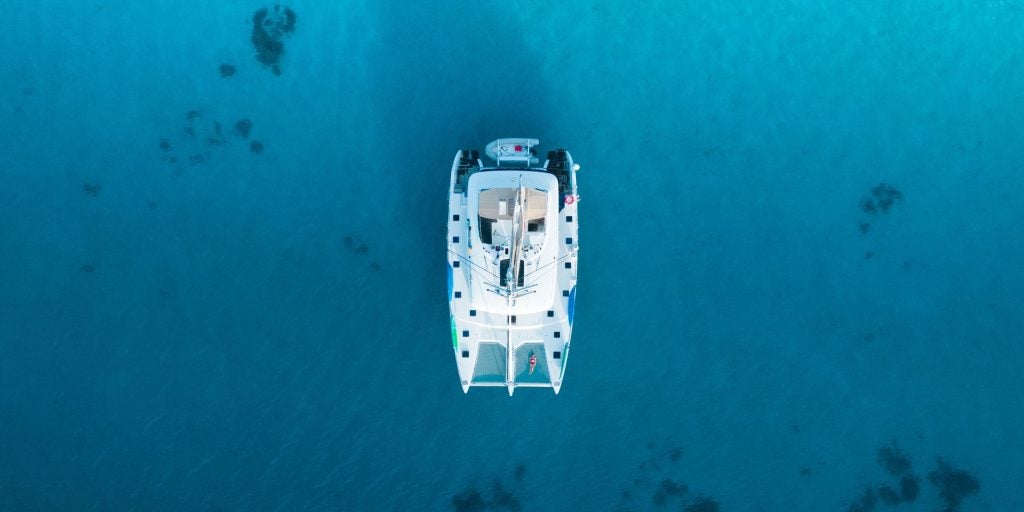
Beyond Ownership. Beyond Ordinary: How U.S. Tax Law Makes 2025 the Best Year to Buy a Yacht
Enjoy a global sailing lifestyle while making a smart financial move.
At Dream Yacht, we believe yacht ownership should be more than a luxury—it should be a strategic decision that enhances your lifestyle and complements your financial goals. With the right structure, placing a yacht into a charter program can potentially unlock yacht tax breaks for U.S. buyers in 2025. While we’re not tax advisors, we work closely with experienced CPAs who can help you explore how yacht ownership might benefit your overall financial strategy.
Speak With a Yacht Ownership Expert

Why Consider Yacht Ownership in 2025?
Owning a yacht through Dream Yacht is more than conventional ownership—it’s a revenue-generating investment paired with access to an extraordinary global sailing lifestyle. Here’s what makes our programs stand out:
Charter Income Potential
When you place your yacht into Dream Yacht’s professionally managed charter fleet, it can begin generating revenue immediately. Owners receive charter income on a quarterly basis, with returns influenced by the vessel type, location, seasonality, and ownership program selected.
Global Sailing Access
Use your own yacht—or exchange your owner sailing weeks for unforgettable sailing vacations in over a dozen of the world’s most iconic destinations. From the Greek Islands to the Caribbean, the Seychelles to Tahiti, Dream Yacht gives you access to the world. Our vast base network means your yacht isn’t just in one location—it’s a passport to the planet.
Hassle-Free Management
Enjoy the benefits of yacht ownership without the day-to-day work. Dream Yacht handles everything for you, including:
- Charter bookings
- Insurance
- Maintenance
- Dockage and logistics
- Cleaning and turnaround service
We make yacht ownership as simple as stepping aboard.

Tax Advantages Through Business Use
When your yacht is used primarily as a business asset—by being placed in an active charter program—it may qualify for a powerful yacht tax break under current U.S. tax law.
Here’s a breakdown of what’s available in 2025:
Section 179 Deduction
- Deduct up to $1,250,000 of your yacht’s cost in the year it is placed into service
- Applies to new or used yachts
- Yacht must be used more than 50% for qualified business activity
- Requires ownership through a bona fide business entity, such as an LLC
- Deduction begins to phase out after $3,130,000 in total business equipment purchases and is eliminated entirely at $4,380,000
Bonus Depreciation
- After using Section 179, you may deduct 40% of the remaining cost under bonus depreciation
- For example, on a $2 million yacht:
- Deduct $1.25M via Section 179
- Deduct $300K (40% of remaining $750K) via bonus depreciation
- Total year-one write-off: $1.55M
Note: Bonus depreciation drops to 20% in 2026 and is scheduled to be phased out completely after that. There is currently no 100% bonus depreciation available in 2025 or 2026 under current law.
Income Limitation and Carryforwards
- Section 179 deductions are limited to the net taxable income of your business
- Unused deductions can be carried forward to future years
Deadline to Qualify: Your yacht must be purchased, documented, and placed into active business use by December 31, 2025 to qualify for these deductions. Dream Yacht and it’s representatives are always happy to discuss charter ownership options but for tax benefits always consult a CPA or qualified tax advisor.

Why Choose Dream Yacht?
Dream Yacht is one of the world’s leading charter and yacht sales companies, offering unparalleled access to:
- Top-tier brands including Lagoon, Bali, Fountaine Pajot, Beneteau, and Jeanneau
- Flexible ownership programs tailored to your lifestyle or investment goals
- Transparent service reporting and dedicated concierge-like owner support
- A global fleet of 800+ yachts across 40+ destinations
- The ability to combine personal use, charter income, and long-term asset value
With over two decades of experience and thousands of happy owners and charter guests, Dream Yacht makes ownership not only seamless—but smarter.

Ready to Explore Yacht Ownership?
Whether you’re a seasoned sailor, real estate investor, or entrepreneur looking to diversify, yacht ownership through Dream Yacht offers a rare opportunity to blend luxury living with tax-smart investing.
Speak with a Yacht Ownership Specialist Today
Fill out the form below to explore your options and discover which yacht and program are the right fit for you.Explore Yacht Tax Breaks and Other Advantages of Charter Ownership
Disclaimer: This blog is does not constitute legal or tax advice. Tax benefits vary by individual circumstances and are subject to change. Always consult a licensed CPA or tax advisor to understand how tax laws apply to your unique situation.


